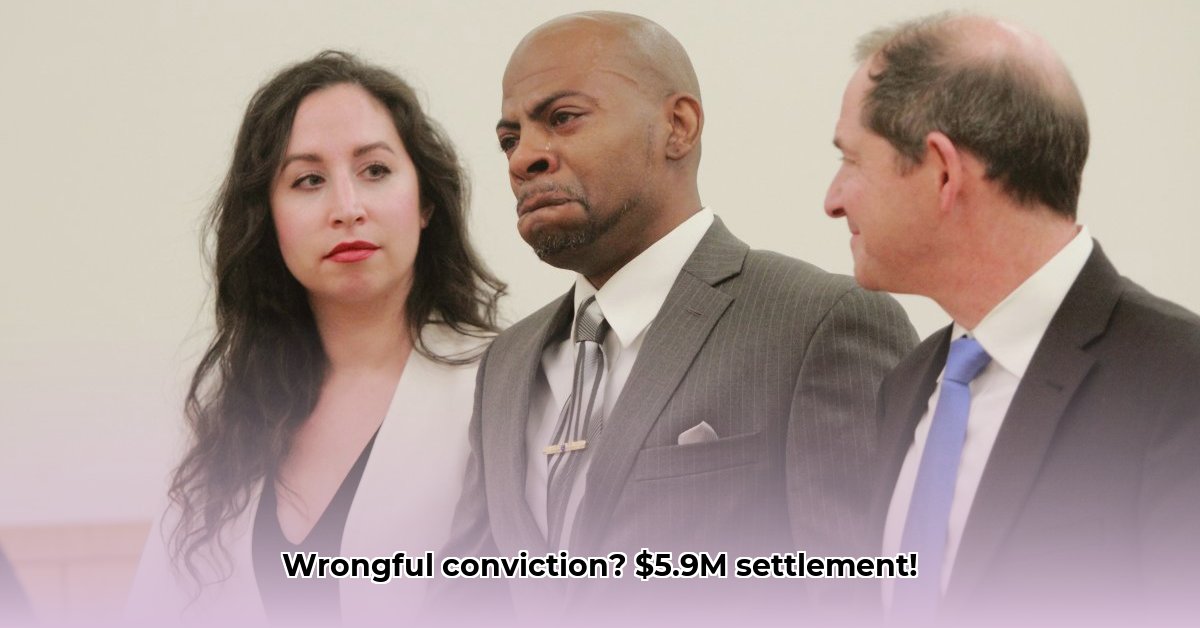
John Bunn Net Worth: More Than Just a Number
Many people search for John Bunn's net worth. The short answer is a $5.9 million settlement received after a successful lawsuit for wrongful conviction. However, this figure only scratches the surface of a far more compelling and significant story. It's a narrative of profound injustice, a relentless fight for freedom, and the critical need for systemic reform within our justice system. The true value lies not in the monetary amount, but in the lessons it teaches about the fragility of justice and the urgent need for change. For more on high-profile cases and their financial implications, see Benjamin Crump's work.
The Crushing Weight of a Wrongful Conviction
John Bunn's life took a devastating turn when, at just fourteen, an anonymous tip led to his arrest. Sixteen years—years of youth, potential, and irreplaceable experiences—were stolen from him. At seventeen, he was wrongly convicted of a crime he did not commit. This wasn't simply a mistake; it was the consequence of serious misconduct and deeply ingrained flaws within the system itself. Detective Louis Scarcella's alleged actions played a significant role, with claims of falsified evidence and disregarded procedures further exacerbating the situation. The $5.9 million settlement, therefore, isn't just about financial compensation; it represents the immeasurable cost of this injustice. How could a system designed to protect citizens fail so profoundly?
A Long and Difficult Journey to Freedom
The fight for John Bunn's exoneration was a protracted struggle, demanding unwavering perseverance and the unwavering support of those who believed in his innocence. The $5.9 million settlement wasn't merely compensation for lost years; it symbolized the immense price paid due to a fundamentally flawed system. This settlement serves as a stark reminder of the devastating consequences when justice goes astray. What steps could have been taken to prevent this from happening?
Systemic Failures: A Broken System
Bunn's case exposed significant weaknesses in our justice system. It illustrates questionable police practices, critical oversights by prosecutors, and inherent biases that disproportionately impact vulnerable communities. These aren't isolated incidents; they are deeply embedded systemic issues demanding immediate attention and decisive reform. The alleged destruction of evidence, for instance, is unacceptable. The lack of adequate resources and legal representation for juvenile defendants reveals a profound imbalance of justice. How can we address these systemic failures to ensure accountability and prevent similar tragedies?
Lessons Learned and the Path Towards Reform
Bunn's ordeal serves as a critical wake-up call. It highlights the urgent need for improvements: enhanced police training emphasizing ethical conduct and investigative rigor, increased accountability for law enforcement agencies, and better legal services for vulnerable populations, particularly juveniles. Reform isn't a mere aspiration; it's a fundamental necessity. The justice system is meant to uphold the law, but in Bunn's case, it demonstrably failed. What specific legislative and procedural changes are necessary to prevent such failures in the future?
A Call to Action: Building a More Just System
Bunn's experience, unfortunately, is not unique. Countless individuals have suffered similar injustices, their lives permanently scarred by systemic failures. His story must serve as a catalyst for decisive change. It's a powerful call to action, urging us to support organizations dedicated to reforming the system and advocating for those whose voices have been unjustly silenced. The fight for a just and equitable legal system is ongoing, and we all have a vital role to play in ensuring this never happens again. What specific actions can individuals and organizations take to contribute to this vital cause?
Key Takeaways:
- John Bunn's wrongful conviction underscores systemic flaws in the criminal justice system.
- Police misconduct played a significant role in his false imprisonment.
- Falsified evidence and inadequate legal representation compounded the injustice.
- The urgent need for reform in police training, evidence handling, and juvenile justice.
- The importance of supporting organizations dedicated to preventing wrongful convictions.